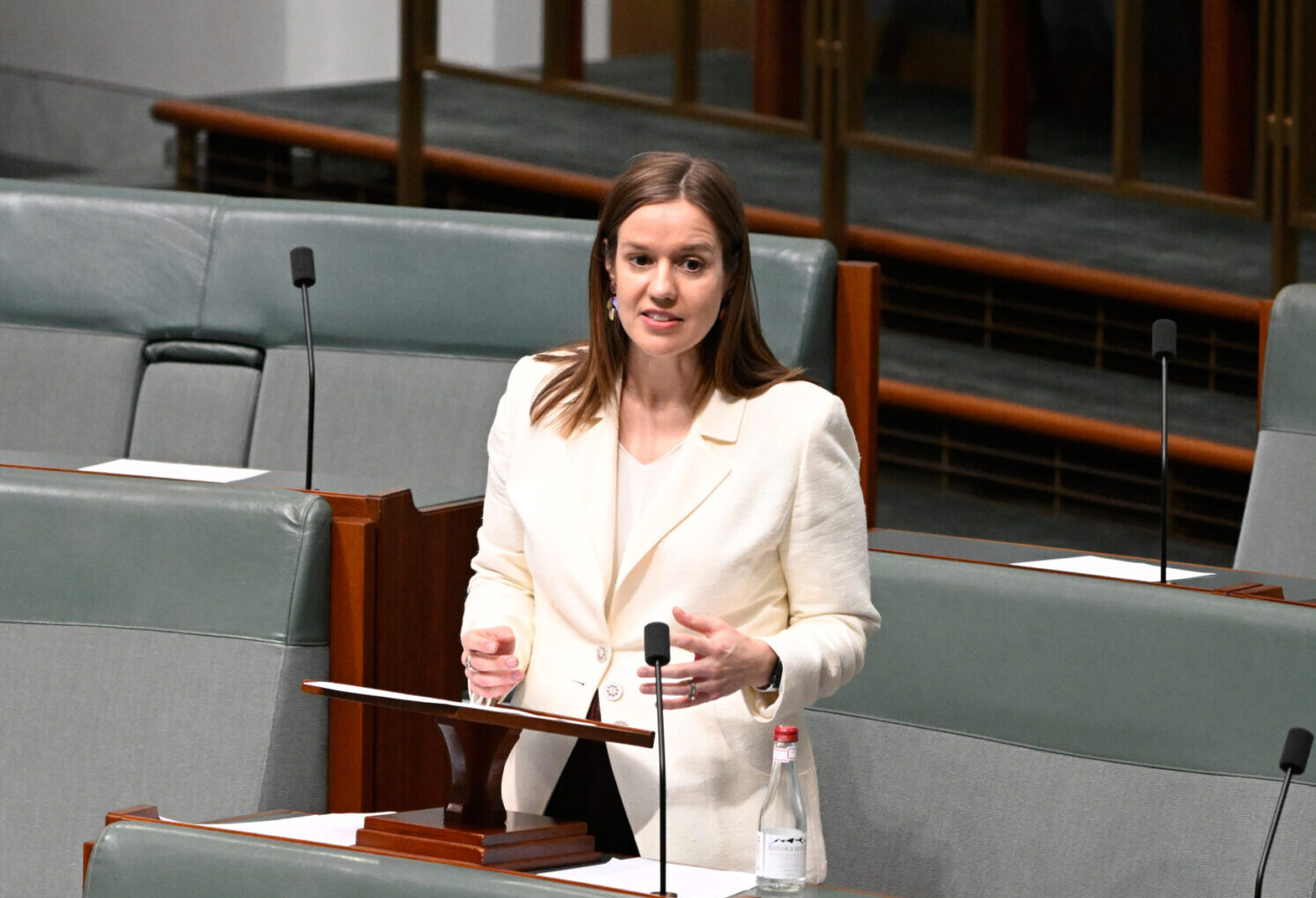I thank the member for Mayo for bringing this motion, because we absolutely do need to consider all possibilities to boost workforce participation with people who are willing and able to work. It is a time at the moment where many employers in my community and in other communities are reporting that they’re struggling to get the workers that they need. That’s why it is really important that our government will hold our Jobs and Skills Summit in September, bringing together groups like unions, employers, civil society and governments so that we can collectively address this challenge that’s before us and consider different options like this one that’s been brought by the member for Mayo.
When we look at our pensions and our social security system, one of the central parts of the Australian social security system is our strong and targeted pension system. It’s important to note that it is a targeted system; it measures a person’s need for income support and their capacity to contribute towards their own support through the means test. The targeted nature of our system is a large part of what makes it equitable, and that should be a principle we retain as we do consider further changes. This is a government that will always stand up for pensioners. We know that the Australians who’ve worked hard all their lives, who have built this country, need support and respect based on that. That’s an abiding principle for this government as we look at this. That includes the ability to work if they want to do so. The current pension work test does allow for pensioners to work, and these arrangements are generous. But the data shows us that, as at March 2022, only three per cent of aged pensioners were taking advantage of the current work bonus concession. In fact the number of aged pensioners with employment earnings has been declining over time, despite there being previous increases in the value of the concessions—so there have been some incentives put in place. So far what we haven’t seen is people taking that up and actually working, so we need to consider what other factors may be behind older Australians not choosing to work.
It seems that one of these factors is most likely age discrimination and the reluctance of many employers to hire older workers. I know in my electorate, I hear from a lot of older people, particularly older women, who might have been out of the workforce for some time and who are looking to re-enter, about the real age discrimination they face. They just can’t actually get a job interview. From people who have been laid off later in life, I hear the same problem. Employers just knock back their CV once they see how old they are. Age discrimination is one of the factors that Ian Yates, the Chief Executive Officer of the Council of the Ageing Australia has cited as a factor in older people not being in jobs, even if they do want to work. In fact, he has cited figures from the Australian Human Rights Commission that somewhere between a quarter and a third of employers actively discriminate on age. This is something that, as a society and as a government, we absolutely have to consider. I was really heartened to see the Minister for Skills and Training in the media today talking about just this—about the fact that age discrimination does exist when it comes to older people working, and that that’s something that we have to tackle.
Other factors that I think we also need to consider when we look at this issue are things like low wages. The member for Mayo talked about the aged-care sector, an area where we know that so many centres are crying out for workers. But let’s be honest; the current wage in aged care is not very attractive. Again, if you’re a pensioner, if you’re looking at re-entering the workforce, one of the things you have to weigh up is, ‘Well, is it worth my time?’ I think a lot of pensioners are probably currently looking at the aged-care sector and thinking, ‘On that rate, that is a pretty unattractive proposition.’ Our government has made a commitment to look at low-paid work to support an increase for aged-care workers. We know that this is vitally important work and that our aged-care workers deserve a pay rise. Perhaps that’s something that will make it a sector that is more attractive to older people. Again, this is an idea worth considering and it is great that our job summit will give us the opportunity to do just that as well as look more broadly at how we are encouraging people to be part of our system to work and to have the fulfilment and the income that comes from working.
We need to look at all factors, such as age discrimination and low wages in industries like aged care and others. Most importantly, we must retain our respect for pensioners. We must make sure that we always stand up for pensioners and their right to a decent life.
